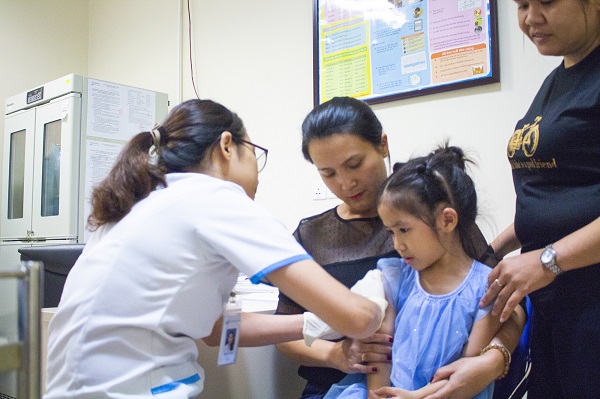Influenza viruses belong to the family Orthomyxoviridae.
Causative agents
The influenza viruses are classified into types A, B and C on the basis of their core proteins. Only types A and B cause human disease of any concern. The subtypes of influenza A viruses are determined by envelope glycoproteins possessing either haemagglutinin (HA) or neuraminidase (NA) activity. High mutation rates and frequent genetic re-assortments of these viruses contribute to great variability of the HA and NA antigens. All of the currently identified 16 HA and 9 NA subtypes of influenza A viruses are maintained in wild, aquatic bird populations. Humans are generally infected by viruses of the subtypes H1, H2 or H3, and N1 or N2.

Mode of transmission
Respiratory transmission occurs mainly by droplets disseminated by unprotected coughs and sneezes. Short-distance airborne transmission of influenza viruses may occur, particularly in crowded enclosed spaces. Hand contamination and direct inoculation of virus is another possible source of transmission.
Nature of the disease
An acute respiratory infection of varying severity, ranging from asymptomatic infection to fatal disease - Typical influenza symptoms include fever with abrupt onset, chills, sore throat, non-productive cough and, often accompanied by headache, coryza, myalgia and prostration. Complications of influenza viral infection include: primary influenza viral pneumonitis, bacterial pneumonia, otitis media and exacerbation of underlying chronic conditions. Illness tends to be most severe in the elderly, in infants and young children, and in immunocompromised hosts.
Death resulting from seasonal influenza occurs mainly in the elderly and in individuals with pre-existing chronic diseases. Influenza A (H1N1) is similar to seasonal influenza but has been characterized by higher activity during the northern summer season, higher fatality rates among healthy young adults and higher incidence of viral pneumonia.

Doctor’s recommendation
-Whenever possible, avoid crowded enclosed spaces and close contact with people suffering from acute respiratory infections.
-Rest and Get more sleep to help your immune system fight infection.
-Frequent hand-washing, especially after direct contact with ill persons or their environment, may reduce the risk of acquiring illness.
-Ill persons should be encouraged to practice cough etiquette (maintain distance, wear mask, cover coughs and sneezes with disposable tissues or clothing, wash hands).
If you have severe illness or you are at high risk for flu complications, contact your healthcare provider or seek medical care. Your health care provider will determine whether flu testing or treatment is needed. Especially the elderly, young children and people with pre-existing chronic diseases such as Chronic Obstructive Pulmonary Disease (COPD), diabetes, coronary heart disease (CHD), heart failure, kidney failure, liver cirrhosis, cancer, immunocompromised conditions as HIV infected patients, on immunosuppressive drug, or on chemotherapy, … are most susceptible to complications “Normal’ Influenza is a serious disease – that’s why so many doctors recommend annual influenza vaccines. Vaccination is an effective way to prevent the commonly circulating strains of human influenza and currently available at City International Hospital.
CIH General Information:
? Address: No.3, 17A street, Binh Tri Dong B Ward, Binh Tan Dictrict (Next to Aeon Mall Binh Tan,) HCM City.
? Hotline: (028) 6280 3333 (ext. 8424 or 8402)
? Website: www.cih.com.vn.
Fanpage: https://www.facebook.com/BenhVienQuocTeCity/
Email: This email address is being protected from spambots. You need JavaScript enabled to view it.










